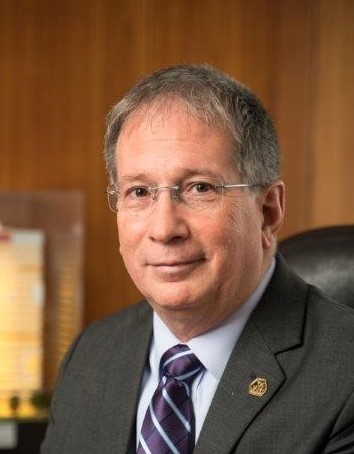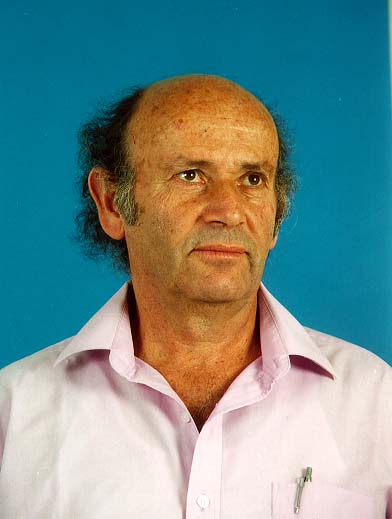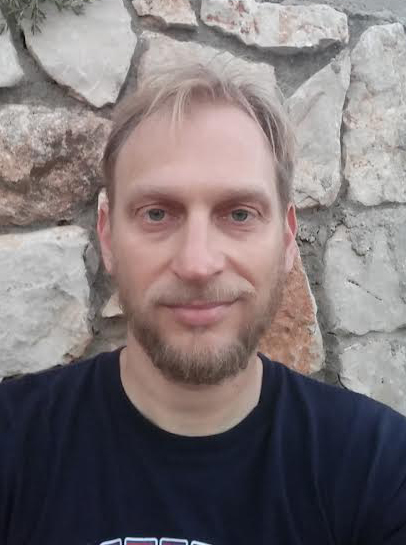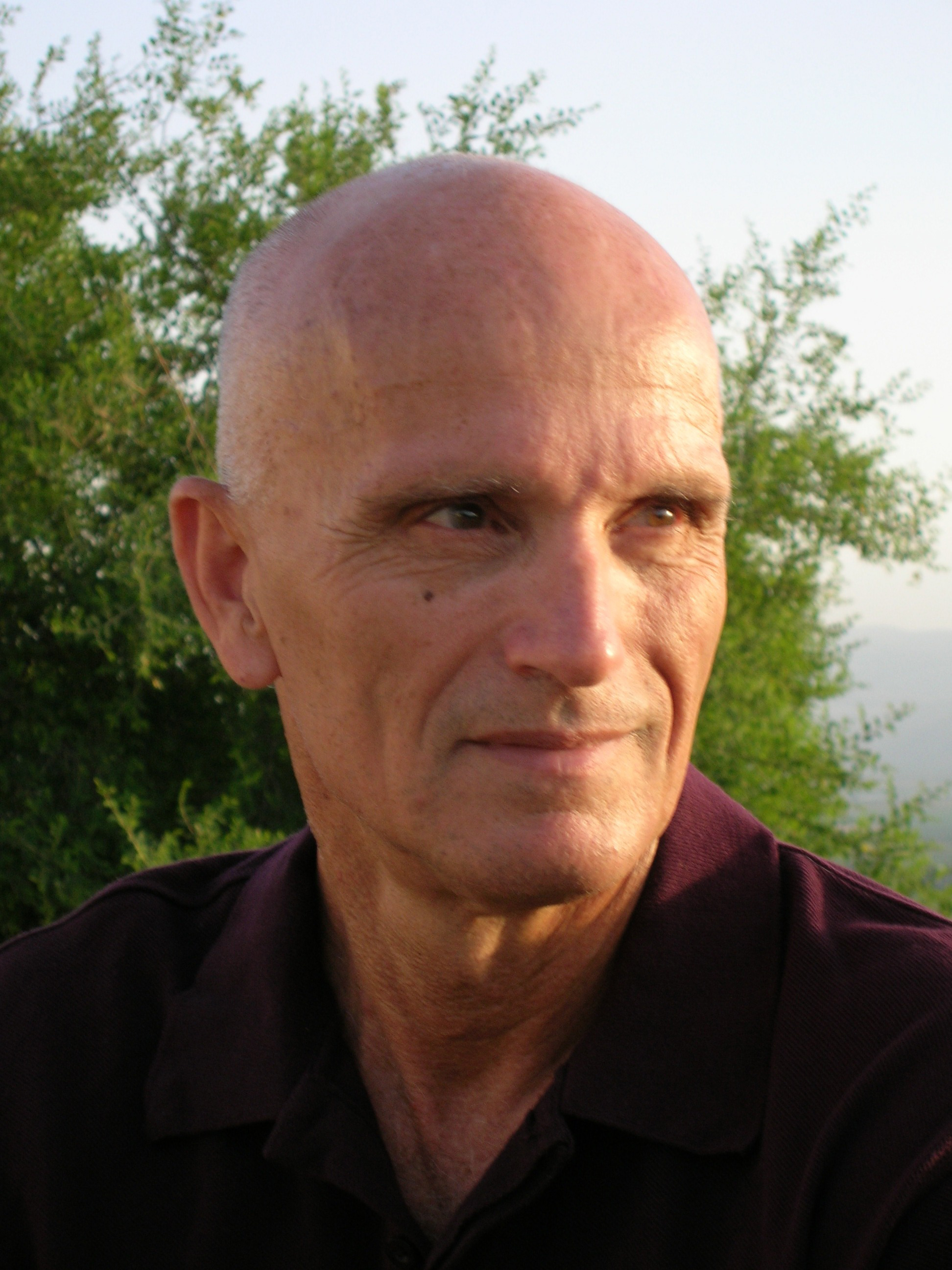








Gil, Sharon
Sharon Gil (University of Haifa) – Welfare and Social Work
Sharon Gil, Ph.D. is a Senior Lecturer at the School of Social Work, University of Haifa and a clinical social worker, psychotherapist, and clinical supervisor; head of the clinical social work specialization in the MA program. My research projects have consistently derived from my clinical work. While working at the psychiatric clinic in Rambam Medical Center, I treated trauma patients. Accordingly, my doctoral research and the publications that followed (see sample list below), focused on the relationship between dissociative amnesia, caused by traumatic head injury, and the development of PTSD. Later on, I have expanded my research to include various personality features as risk factors for subsequent PTSD. In recent years, both my clinical work and my research efforts focus on adults' survivors of childhood sexual abuse. Below is a sample list of recent or most contributing publications.
Sample list of recent or most significant publications
Gil, S., Caspi, Y., Ben-Ari, I., Koren, D., & Klein, E. (2005). Does memory of a traumatic event increase the risk for Posttraumatic Stress Disorder in patients with traumatic brain injury? A prospective study. American Journal of Psychiatry, 162(5), 963-969.
Gil, S. (2005). Evaluation of pre-morbid personality factors and pre-event posttraumatic stress symptoms in the development of posttraumatic stress symptoms associated with a bus explosion in Israel. Journal of Traumatic Stress, 18(5), 563-567.
Gil, S. (2005). Pre-traumatic personality as a predictor of posttraumatic stress disorder among undergraduate students exposed to a terrorist attack: A prospective study in Israel. Personality and Individual Differences, 39, 819-827.
Gil, S. (2014). Male Victims of Childhood Sexual Abuse by a Male or Female Perpetrator. Journal of Traumatic Stress Disorder & Treatment, 3(3), 1-6.
Gil, S. (2015). Is secondary traumatization a negative therapeutic response? Journal of Loss and Trauma, 19(5), 1-11.
Gil, S. (2015). Risk Factors for Traumatic Exposure and for Posttraumatic Stress Symptoms (PTSS). Journal of Loss and Trauma, 20, 245-252.
Weinberg, M., & Gil, S. (2015). Trauma as an Objective or Subjective Experience: The Association between Types of Traumatic Events, Personality Traits, Subjective Experience of the Event, Levels of Dissociation and Posttraumatic Symptoms. Journal of Loss and Trauma, 21(2), 137-146.
Gil, S., Weinberg, M. Shamai, M. Ron, P. Harel, H. Or-Chen, K. (2016). Risk factors for DSM 5 Posttraumatic stress symptoms (PTSS) Among Civilians During the 2014 Israeli-Hamas war. Psychological Trauma: Theory, Research, Practice, and Policy, 27, 1-6.
Gil, S. (2016). Building Concern Free of Force in the Treatment of Adult Survivors of Childhood Incest. British Journal of Psychotherapy, 32(2), 175-186.
Greenbaum, Noam
Noam Greenbaum (University of Haifa) – Environment; Social Science
Noam Greenbaum is an associate professor in Geomorphology and hydrology at the department of Geography and Environmental Studies and the department of Natural Resources and Environmental Management, the University of Haifa, Israel. He received his Ph.D. from the Hebrew University of Jerusalem in 1996 where he also spent his 2-year post-doc. Since then, his main area of research is past and present floods, dambreak floods, floods risk assessment and damage in Israel and worldwide (United States, Namibia, Spain). Another major area of research is past and present earthquakes in Israel in the framework of the state preparedness for earthquakes. As a consultant he was involved in the geological feasibility study (1989-1992 and 1996-2001) of locating a safe site for a Nuclear Power Plant in the Negev for the Israel Electric Corporation. He was also consulting the Dead Sea Works on floods and risk assessment. Another research area is forest fires and their effects on soils as well as industrial fires and their environmental effects. At present, he is involved in several local and international projects dealing with floods and sediments.
He is the author of more than 65 scientific articles in peer-reviewed journals and book chapters.
Gueron, Shay
Shay Gueron (University of Haifa) - Engineering, Technology and Planning; Public Health and Emergency Medicine
Shay Gueron is an Associate Professor of mathematics at the University of Haifa, Israel. He was also an Intel Senior Principal Engineer, serving as Intel’s Senior Cryptographer (2005-2017). His interests include cryptography, security and algorithms. He is now a Senior Principal Engineer at Amazon Web Services.
Shay is responsible for some of Intel processors’ instructions such as AES-NI, PCLMULQDQ and coming VPMADD52, and for various micro-architectural features that speed up cryptographic algorithms. He contributed software to open source libraries (OpenSSL, NSS), with significant performance gains for symmetric encryption, public key algorithms and hashing. He was one of the Intel Software Guard Extensions (SGX) technology architects, in charge of its cryptographic definition and implementation, and the inventor of the Memory Encryption Engine. He is a co-author of AES-GCM-SIV, a nonce misuse resistant authenticated encryption mode, which is now being considered as an internet draft by the IETF. Shay is interested in data integrity and recovery technologies, that still preserve sensitive data privacy. Such techniques can be considered as acceptable safeguards in cases of a cyber-disaster.
Halberthal, Michael
Michael (Miki) Halberthal MD, MHA (Rambam Health Care Campus; Technion) – Public Health and Emergency Medicine
Dr. Michael (Miki) Halberthal is the General Director of Rambam Health Care Campus. Born in Tel Aviv in 1958, he is married and the father of four. Dr. Halberthal earned his M.D. in 1986, from the Technion-Israel Institute of Technology. His postgraduate training was completed at Rambam Health Care campus in Pediatrics and Pediatric Critical Care. As one of Rambam's leading postgraduate trainees, Dr. Halberthal was chosen to pursue a further subspecialty fellowship in Pediatric Cardiac Clinical Care at the world-renowned Brompton & Harefield Institute in London, U.K. After returning to Israel, Dr. Halberthal successfully established the Pediatric Cardiac Critical Care Service at Rambam, which continues to be one of the most active and successful services of its kind. In 1996, Dr. Halberthal completed a combined advanced clinical and research fellowship at the University of Toronto and the Hospital for Sick Children in Canada. In addition to numerous hospital activities, Dr. Halberthal completed his M.H.A. in Health and Hospital Administration at Tel Aviv University's Recanati School of Business Administration (2012).
Since 2001, Dr. Halberthal has held various professional leadership positions at Rambam, including serving as the Director of Pediatric Cardiac Critical Care, Director of Hospital-wide Emergency Triage, and Senior Staff Physician in the Pediatric Intensive Care Unit of Rambam. In 2009, he joined the Executive Leadership at Rambam and as the Director of Medical Operations. At the end of 2013 Dr. Halberthal was appointed Deputy Director of Rambam, primarily responsible for medical human resources; allied medical services; safety, quality, and risk management; emergency preparedness and the international trauma school and became the hospital’s General Director in 2019.
Dr. Halberthal served for over 30 years in the Israel Defense Forces Airborne Rescue and Evacuation Unit. He was actively involved in the coordination of international civilian air rescue and transport of emergency care patients.
A Clinical Lecturer (Educator) in the Technion’s The Ruth & Bruce Rappaport Faculty of Medicine, Dr. Halberthal is active in research and has published scholarly articles in the areas of hospital management, pediatric critical care, trauma and mass casualty preparedness, and airborne medicine. He is an active and highly regarded lecturer and teacher to medical students, residents and fellows, nursing staff and students, and allied health professionals in those domains of expertise.
Herer, Yale T.
Yale T. Herer (Technion) - Engineering, Technology and Planning
Yale T. Herer, B.S. (1986), M.S. (1990), Ph.D. (1990), Cornell University, Department of Operations Research and Industrial Engineering. Yale is currently an Associate Professor in the Faculty of Industrial Engineering and Management at the Technion – Israel Institute of Technology and is serving as Head of the Industrial Engineering Area. Yale joined the Technion in 1990 immediately after the completion of his graduate studies. In 1997 Yale moved to the Department of Industrial Engineering at Tel-Aviv University and in 2001 he returned to the Technion and has been there ever since. During the 2004 – 2005 academic year he spent a sabbatical at Northwestern University in the Department of Industrial Engineering and Management Sciences. During the 2011 – 2012 academic year he spent the fall semester on sabbatical at INSEAD in the Technology and Operations Management Area. During the 2015 – 2016 academic year he spent a sabbatical at the Georgia Institute of Technology. Yale also briefly visited Cornell University in the Department of Operations Research and Industrial Engineering in the summer of 2000. He has worked for several industrial concerns, both as a consultant and as an advisor to project groups. Yale is a member of the Institute for Operations Research and Management Sciences (\mbox{INFORMS}) and the Operations Research Society of Israel (\mbox{ORSIS}). He also serves as an Associate Editor for {\it Naval Research Logistics} and has served on the editorial staff of {\it IIE Transactions} and {\it Operations Research Letters}. Yale's research interest can be broadly defined as covering Production Planning and Control. More recently Yale has focused his research on the area of Supply Chain Management, especially when integrated with transshipments or other responsive operational activities. Yale has won various prizes including a 1996 {\it IIE Transactions} Best Paper Award, the 2002 Mitchner Award in Quality Sciences and Quality Management, a 2008 IBM Faculty Award, and most recently INFORM's 2013 Daniel H. Wagner Prize for Excellence in Operations Research Practice.
Hyams, Gila
Gila Hyams (Rambam Health Care Campus; Technion) – Public Health and Emergency Medicine
Mrs. Gila Hyams has been Director of The Teaching Center for Trauma, Emergency and Mass Casualty Situations (MCS) at Rambam Health Care Campus since 1999 and is the Trauma Coordinator of Rambam’s Trauma Unit. She is the Director of Nursing at Rambam since 2015.
Mrs. Hyams received her BA (RN) from the Hebrew University, Jerusalem and Assaf Harofe Medical Center School of Nursing, Tzrifin in 1990, followed by an MA in Nursing from Tel Aviv University (2002) and a Diploma in Medical Services Administration for Senior Staff from the University of Haifa (2002).
Mrs. Hyams has coordinated for 13 international courses on developing and organizing a trauma system and MCS organization. In addition, she has organized and led workshops and courses to further development of local emergency and trauma systems in Italy, Malta, Bulgaria, Czech Republic, Portugal, Latvia, Estonia, Croatia, Puerto Rico, U.S.A., Chile, India, and Thailand. In April 2005, Mrs. Hyams coordinated a NATO Advanced Research Workshop on Mass Casualty Situations held in Haifa, Israel. Since then two other NATO courses were held at Rambam, one in November, 2009 and another in November, 2014. The latter course focused on Hospitals under Fire—Operating Hospitals under Extreme Circumstances.
Among her public activities, Mrs. Hyams is a member of the Israel National Trauma Council and has collaborated with the Israel Trauma Society in organizing eight Definitive Surgical Trauma Care (DSTC) Courses. She also established and organized the Israeli Trauma Mass Casualty Nursing Courses
Inbar, Moshe
Moshe Inbar (University of Haifa ) – Social Science; Environment
Moshe Inbar is a Prof. Emeritus at the Geography and Environmental Studies Department at the University of Haifa. His research focus is Fluvial Geomorphology and Natural Disasters. He conducted and published research studies on volcanic eruptions (Hudson, Puyehue- southern Andes, Tolbachik-Kamchatka) tsunami (Thailand 2004, Chile 2010) landslides ( Puebla-Mexico 1999) floods (Jordan river 1969, 2003, Ambato river, Argentina, 2013)
He is the Co editor of DESASTRES NATURALES EN LATINO AMERICA (2002), as well as NATURAL DISASTERS IN ISRAEL (2007,2016). He has about 20 publications in international journals on the topic and many other activities (conferences, scientific adviser, teaching)In addition, he established a Website on Natural disasters in Israel- data base from 1948-2017 (see:https://geo.hevra.haifa.ac.il/~inh/index.php/en)
Israel, Emil
Emil Israel (Technion) – Engineering, Technology and Planning
Dr. Emil Israel is an urban planner, geographer and Assistant Professor in the Faculty of Architecture and Town Planning at the Technion. Emil explores diverse aspects of space and society. Emil’s research interests include issues of spatiality, social justice, inequality and poverty, as well as issues that concentrate on suburbanization, social distinction, and on immigration and globalization. Before arriving at the Technion, Emil was a researcher at the Samuel Neaman Institute for National Policy Research, Technion Israel. There he explored core-periphery inequalities, concentrating on themes of regional development. Emil completed both his undergraduate and graduate studies in the Hebrew University of Jerusalem (Magna Cum Laude), specializing in Geography and Political Science. He holds a PhD from the Technion (2013). Emil conducted post-doctoral studies in the Department of Urban Studies and Planning (DUSP), in MIT - Massachusetts Institute of Technology, as well as in the Minerva Center for the Rule of Law under Extreme Conditions, in the University of Haifa, Haifa. In this recent study he explores stakeholder engagement and participation mechanisms for earthquakes' preparedness (as well as for other large-scale disasters), focusing in peripheral local authorities in Israel.
Kimhi, Shaul
Shaul Kimhi (Tel Hai Academic College) – Welfare and Social Work
Shaul Kimhi completed his bachelor’s and master’s degree in Israel and his Ph.D. (psychology) at the Palo Alto University, California, USA. He was Head of the Psychology Department at Tel Hai College from 2009 to 2016. Prof. Prof. Kimhi used to be a member of the American Psychological Association (APA), the International Society for Political Psychology (ISPP), and the International Political Science Association (IPSA). His main areas of research are: individual, community and national resilience; coping with stress; political psychology (including behavior analysis of political leaders), psychology of terrorism, and army psychology.
Professor Kimhi has published 4 books (one of them as an editor), 82 articles in refereed journals and 10 chapters in collections. He has participated in many academic international conferences, including as invited and keynote speaker and serves as a referee for several professional journals. He is often invited to the Israeli media (TV and radio) to discuss his areas of expertise. In the past Prof. Kimhi served as a special advisor in the Israeli Army Intelligence Corps. Today, Shaul is Professor Emeritus at Tel-Hai College and he is one of the founders (in the process) of the 'Multi-national Resilience & Well-being Research and Knowledge Center' at Tel Aviv University.
Klein, Ehud
Ehud Klein (Technion) – Public Health and Emergency Medicine
Prof. Ehud Klein graduated from the Hebrew University in Jerusalem and completed his training in Psychiatry at the Rambam Medical center, and a research fellowship at the National Institute of Mental Health in Bethesda Maryland (US). After his return from the US, Professor Klein served several years as deputy Chairman for Research and Academic affairs, and became Chairman of the Department, until his retirement , last year. .
In addition to his clinical position as department head, Professor Klein pursued over the years a rich research career and continues to be an active researcher. His focus of research in the last years has been on traumatic stress and Post-traumatic stress disorder, and in Transcranial magnetic brain stimulations. Professor Klein is the recipient of numerous research grants and has published extensively in leading journals in his field.
Brief summary of my research on Post-Traumatic Stress Disorder (PTSD).
This incapacitating psychiatric disorder, has been another focus of my research interests in the last years. One of my first studies in this field focused on the development of PTSD in injured traffic accident victims. This prospective study which included about 100 subjects was the the PhD thesis of I. Arnon under my supervision. The results showed that about 30% of injured traffic accident victims suffer from PTSD one year after the accident. A Continuation follow up study revealed that 3 years after the accident, as many as 50% of those who had PTSD after 1 year, still had the disorder. A major part of this work was published in the American Journal of Psychiatry in 1999 with an editorial article discussing our findings. Four additional papers summarizing results from this study were published subsequently. The findings of this study were presented in invited lectures at the World Psychiatric Congress (Madrid 1995), in the 2nd meeting of the International Society for Traumatic Stress Studies (Jerusalem 1996) and invited lectures and grand rounds in university departments in Israel and abroad. Since this study, a major part of my work in PTSD has focused on vulnerability factors and early predictors of PTSD. This issue is of particular importance since only 20-25% of trauma survivors develop PTSD. Thus early identification of those at risk is crucial for the implementation of early and effective treatment interventions that might prevent chronic morbidity.
One such study done in collaboration with Dr. D. Koren, explored the role of combat related injury in the development of PTSD. In this study soldiers who were injured in war activity during their service in Lebanon, were compared to their peers who were involved in the same events, but were not injured. The results of this study showed that physical injury is a major risk factor for PTSD and that injured soldiers were about 8 times more likely to develop PTSD compared to their non-injured commerades. The study was published in the American Journal of Psychiatry in 2005.
In another prospective study we investigated the role of traumatic memory as a risk factor for PTSD. Two PhD students S. Gill and I. Ben-Ari completed their theses on this topic. Findings from these studies showed that among subjects who survived a traumatic event involving minor head injury, those with memory for the event, had a five-fold higher risk to develop PTSD as compared to those who lacked memory for the event. The results of this study were presented in the Annual meeting of the International Society for traumatic stress studies in Baltimore USA, and were published in the American Journal of Psychiatry in 2005.
In an additional study which has recently been completed we investigated traumatic exposure and its sequelae in Bedouin servicemen in the Israel Defense Forces. Studies of veterans from ethnic minority backgrounds indicate differential rates of posttraumatic stress disorder (PTSD) and other psychological problems, suggesting that ethnicity increases vulnerability to psychological risk following war-zone duty and negatively impacts vocational, social, physical, and health adjustment. The circumstances of Israel’s Bedouin citizens are especially complex given their Arab ethnicity and Muslim faith. In order to explore the impact of trauma on mental and physical health, functioning and medical services utilization we conducted a cross-sectional study of Bedouin households associated with the IDF in a Galilee community. Three hundred and seventeen Bedouin veterans and active-duty servicemen, mostly enlisted in combat units, completed the interviews, representing 85% of those identified through door-to-door recruitment and 91% of those who agreed to participate. Traumatic events were reported by 75% of the sample (n=238), mostly combat (89.9%) and car accidents (27.3%). Psychiatric diagnoses determined by the Structured Clinical Interview for DSM-IV Disorders (SCID) were found in 27%. Posttraumatic Stress Disorder (PTSD) was identified in 19.5% of those traumatized and was mostly co-morbid with depression, alcohol abuse or both. Of all traumatized, those with PTSD were more likely to report elevated levels of current depression symptoms (F=121.45, p<.001); and poor health status (odds ratio [OR]= 17.78; 95% confidence interval [CI], 6.53-47.84; p<.001), associated with significantly higher rates of physician-diagnosed medical conditions, various somatic symptoms, health-related impairment in daily functioning and frequent use of primary and specialty care services. Our findings indicate that trauma exposure is highly prevalent in this sample and that PTSD is associated with significant distress and disability. While rates are comparable to those described in other cohorts of combatants, Bedouins with PTSD were mostly undiagnosed and untreated in spite of severe impairment in health and daily functioning and frequent use of primary care services.
In another study we evaluated the efficacy of early pharmacological treatment for PTSD prevention in people who have recently been exposed to a traumatic event. This was a randomized controled trial where Escitalopram or placebo treatment is given to trauma survivors within 4 weeks from the traumatic event, for a period of 6 months followed by an additional medication free observation period up to one year after the event. Recruitment was done in four medical centers in Israel
A new line of research in which our group has become involved, is the study of the potential therapeutic effects of Oxitocin in PTSD and social anxiety. This work is done in collaboration with Prof. S. Shamay-Tsori from the Department of psychology at the Haifa University and several studies are under progress. Over the last years I have been invited to present lectures and chair scientific sessions on risk factors and early predictors of PTSD in several International meetings such as the Annual meeting of the European Society for Neuropsychopharmacology ( ECNP) in Amsterdam in 2005, the Annual meeting of the American Society for Biological Psychiatry in Toronto in 2006 and the forthcoming World Congress of Biological Psychiatry to be held in Santiago De Chile in April 2007. I have also served as an invited guest editor for a special issue of CNS Spectrums on risk factors and early predictors of PTSD and and authored two book chapters on the role of physical injury as a risk factor for PTSD. In addition I wrote with professor J. Zohar an invited chapter for the Encyclopedia of Stress.(Elsevier, 2nd edition, in press) summerizing PTSD research in Israel in the last three decades,. I am also member of a national committee which is preparing treatment guidelines for PTSD that will serve professionals and therapists who are treating patients with PTSD. In paralel, to complement our clinical research in PTSD, several preclinical studies were done in collaboration with Prof. Dorit Ben-Shachar, head of our research laboratory on the role of DNA methylation (epigenetic factors) in the vulnerability to PTSD (manuscript no' 81), The differential effects of various types of stress on behavior and neuronal plasticity related genes, the relevance of interaction between norepinephrine and glucocorticoids induced signaling pathways to the pathogenesis of stress related disorders (manuscript no' 99), and the effects of early postnatal interference with the expression of genes regulated by the transcription factor Sp1.



